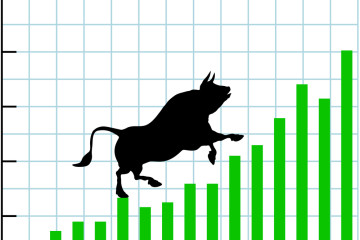Global Governments Are Boosting Spending at the Fastest Rate since 2009

published Jun 6th 2016, 7:33 am, by Luke Kawa
(Bloomberg) —
The world’s governments are stepping up to the plate to relieve monetary policymakers of some of the burden of supporting persistently slow-growth economies, according to HSBC Holdings PLC.
Around the world, government spending is poised to grow by more in 2016 than any year since 2009, when fiscal authorities embarked upon a coordinated plan of boosting expenditures to deal with the damage wrought by the financial crisis.
“Overall we now have a fiscal stimulus in the global economy,” writes Global Chief Economist Janet Henry. “It is not large, but it is getting bigger and, for the first time since 2010, we estimate that global government spending will grow more quickly than global GDP.”
This news is music to the ears of international organizations such as the International Monetary Fund as well as financial heavyweights like former Fed Chair Ben Bernanke and BlackRock’s Larry Fink, who have long argued that governments should play a larger role in driving growth.
The reasons for the pick-up in spending are manifold: Chinese authorities are pulling fiscal levers to buoy activity, state-level spending has increased in the U.S., Germany has been forced to expand spending in light of the refugee crisis, France’s leaders have cut corporate taxes in a pre-election year, and in Canada, a new government is increasing investments in infrastructure.
With central banks around the world resorting to unconventional policy like the introduction of negative interest rates to kick-start their economies, this fiscal boost potentially allows them to ease up on the monetary accelerator and reduces the odds of reaching their effective lower bounds.
Bank of Canada Governor Stephen Poloz, for instance, has praised the policy mix as “better” in light of the new government’s plan for increased spending. In a speech on Saturday, he explained how coordination between monetary and fiscal authorities could help mitigate risks to financial stability by influencing the composition of debt.
“Given weak nominal global growth and excess savings monetary easing and fiscal stimulus need to work closely together,” adds Henry. “We suspect they will. Full-blown helicopter money is not imminent but ‘paper’ helicopters ([quantitative easing] which allows the government to spend freely without being reprimanded by the market), are already airborne.”
However, this pick-up in government spending may prove insufficient to offset sluggish investment and trade, the economist warned.
“The U.S. cannot single-handedly lift the global economy out of this weak spot, any more than China alone was capable of being the global economy’s only real growth engine and absorber of the rest of the world’s disinflationary pressures for more than a few years,” writes Henry. “The world needs more than one engine.”
To contact the author of this story: Luke Kawa in New York at lkawa@bloomberg.net To contact the editors responsible for this story: Joe Weisenthal at jweisenthal@bloomberg.net Tracy Alloway at talloway@bloomberg.net
copyright
© 2016 Bloomberg L.P







No Comment